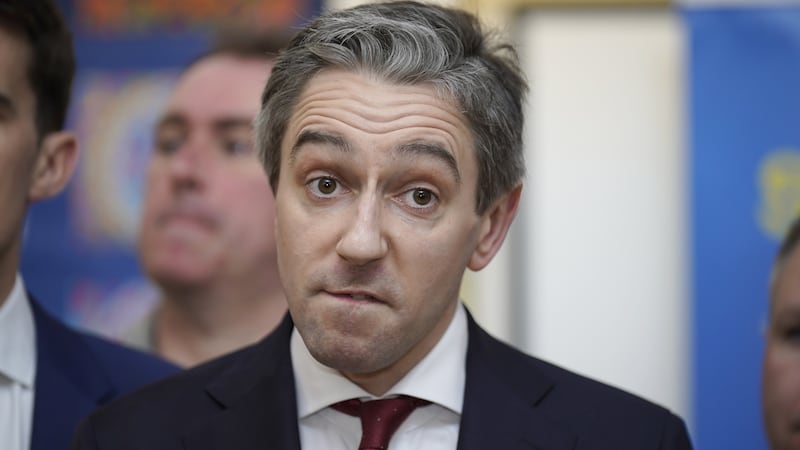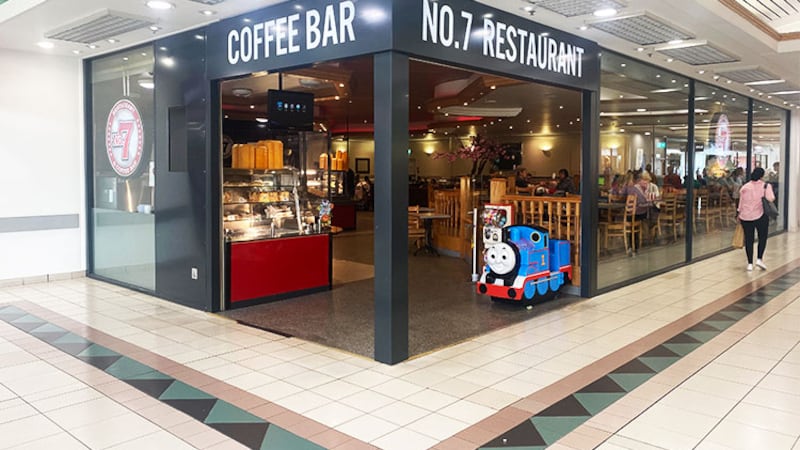In answer to a ‘hypothetical’ question Arlene Foster recently said she would leave rather than live in a united Ireland. Mrs Foster would presumable go to live in what some call ‘The Main Land’ only to discover that the general British public have very little time for the flag flying, bonfire burning, sash swaggering, marching culture that masquerades as loyalty. She may also discover that wherever she goes she will be regarded as being more Irish than British; many of her compatriots who have gone abroad have found themselves engaged in nationality dialogue as follows. ‘Are you Irish?’
‘No, I’m British.’ ‘Where are you from?’
‘Northern Ireland.’ ‘So then you are Irish.’
Eventually, they get fed up and invariably just say ‘I’m Irish.’ In reality when you get off the boat in Stranraer or land at Stansted, you are just a ‘Paddy’ like the rest of us.
When unionist-minded people escape the clutches of a myopic society, which demonises everything Catholic and Irish, many realise they have much in common with their fellow Irishmen; they join Irish societies and even socialise in GAA clubs in places like Toronto and Melbourne. One former Portadown Orangeman I know of became an active member of the GAA in a Sydney suburb and ended up sending his sons to a Catholic school.
The question of Irish unity can no longer be dismissed as hypothetical; the demographics indicate an eventual nationalist majority, perhaps within the next 10 years. The union will then depend on some traditional nationalists voting to maintain it. If we are faced with a post Brexit hard border, it is difficult to see any nationalist supporting the union. The £400,000 ‘dark money’ the DUP spent on the Brexit campaign will then seem like a costly mistake.
The majority in Northern Ireland voted against Brexit. The DUP said we must abide by democracy and actively discouraged any special status for the province. In the event of a majority voting for Irish unity, what will the
DUP be – democratic or unionists?
P McKENNA
Newry, Co Down
Use ‘sugar tax’ to promote healthier lifestyles
The introduction of the so-called sugar tax on sugary drinks must be backed by a bonus to schools in Northern Ireland to promote healthier lifestyles, notably through sport.
The UK government has already determined the expected £415 million revenue raised from the tax in England will go to schools, with the objective of increasing physical activity and thus adding to the value of this policy intervention on health promotion.
This uplift would equate to around £14.5 million in Northern Ireland, but of course that money will go straight to the Department of Finance. The temptation will be to reallocate it to hard-pressed budgets elsewhere. However, this would have the effect of depriving schools in Northern Ireland of funds which could be used to promote healthier lifestyles and would see pupils here left behind.
We should be under no illusions about what the consequences are if we do not invest in healthier lifestyles from the outset. Higher obesity rates equate to higher rates of conditions such as diabetes, but also to generally poorer mental well-being and to higher rates of other serious conditions – for example, many may not be aware five per cent of cancers are related to obesity. If the public are to believe such taxes are designed as policy interventions for the greater good rather than ways of raising revenue for the government, we have to match the targeted interventions with targeted funding for targeted actions.
Given this is a UK-wide tax and the purpose of the reallocation of the revenue from it, as well as of the tax in the first place, is to reduce rates of obesity and improve overall health, it is essential the money is ring-fenced in Northern Ireland the same way as in England.
PAULA BRADSHAW MLA
Alliance Party
Renewed imperative for Irish unity
Post the recent ‘Brexit’ vote in the UK and with Britain currently negotiating her exit from the European Union, Ireland – both north and south – faces certain upheaval over the months and years to come.
Brexit is now the dominant conversation in Irish politics, with much of that discussion on its likely impact on the border – a border which still separates the north of our country from its natural hinterland, the rest of Ireland.
Much of the focus is on whether a ‘renewed’ border, despite it having never gone away, should be a ‘hard border’ or a ‘soft border’ – depending on what arrangements are decided on by Britain [which claims sovereignty over the North] and the rest of Europe when Brexit has been finalised.
But the damage that Brexit is certain to do Ireland, in particular the north – which faces acute isolation removed from Europe and on the margins of the UK – demands neither a hard border or a soft border but an end to the border, with full Irish unity to proceed in its stead.
Brexit, then, establishes a renewed imperative for Irish unity – that Ireland at last be reunited. With the difficulties faced by our divided country set only to deepen, in a manner not seen in many decades, this is now a national priority.
On that basis, we propose that the Irish people be afforded their long-denied right to determine their own future through a national referendum that brings forward an independent all-Ireland republic.
Such a republic is best-placed to resolve the complex challenges presented by Brexit. It would afford the Irish people a better future for each of their number, in a modern democratic arrangement that affords the stability demanded by these uncertain times.
SEAN BRESNAHAN
Thomas Ashe Society,
Omagh, Co Tyrone
Britain has no loyalty to double agents
The British government has, whether by loyalty or blackmail, been running double agents in Northern Ireland for the past 40 years. Many have been involved in perpetrating many acts of violence including murder. So why is this British government so concerned about an attempt to kill a Russian double agent? Why did Boris Johnson say that it’s the first time a gas attack happened in Britain since the last war?
I think they are playing it all up because they have no Brexit plans and are trying to bluff the European partners into giving them an easy deal. It can’t be because they believe in loyalty to double agents as from their conduct here they couldn’t care less.
JOSEPH KENNEDY
Dunmurry, Co Antrim
Out of the mouths of babes
Recently during The Nolan Radio Show, my five-year-old grandson excitedly rushed into the kitchen to me and said: “Nanny, nanny the man on the radio said shut up! Shut up! Shut up! That’s three times. He also goes to bed with no clothes on. Teacher, mummy and daddy say shut up is not nice to say, it’s bad. But nanny is he poor as he has no PJs?”
I replied that the man on the radio is called Stephen Nolan and at times he can be uncouth.
‘Nanny what does that mean?’ It means very bad manners. I turned the radio off and enjoyed the rest of the morning with my grandson.
Perhaps the production team could take this letter on board and at least try to avoid offensive language and promote good communication.
FRANCES WILSON
Craigavon, Co Armagh







